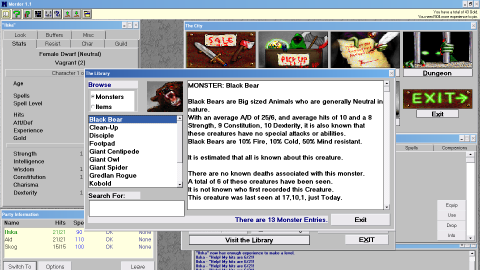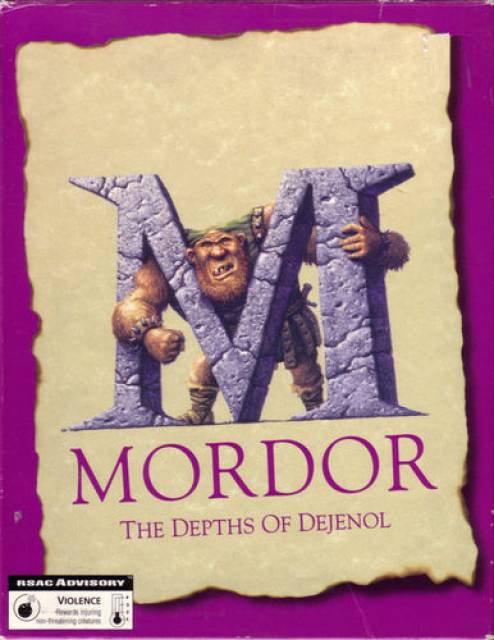Overview
Mordor: The Depths of Dejenol is a high-fantasy first-person role-playing game developed and published by David Allen (as MakeItSo Software) for Windows PCs in 1995.
A dungeon crawler that draws inspiration from the late-1970's multi-user dungeon game Avatar, Mordor puts players in the fantasy world of the same name (unrelated to the Mordor from the works of J. R. R. Tolkien) as customizable adventurers in a persistent world (where all player characters on the same instance can interact with each-other, allowing for character recovery, item trading, and roaming parties). Like some other RPGs at the time for Windows PCs, Mordor puts different aspects of the game (such as the player stats and automap) in separate organizable sub-windows within the game's main window.
The game is set in the city of Marlith, built over the ruins of the ancient mining city of Dejenol. When the entrance to the mines were re-discovered, expeditions began to explore it; but the dungeons' hostile inhabitants forced the city's elders to form Guilds to train new adventurers. Players play as these adventurers as they attempt to reach the fifteenth level of the dungeon, where the mythical Prince of Devils awaits.
The game was originally distributed as shareware, with the limited version only allowing access to the first three levels of the dungeon. A sequel was in development in 1997, titled Mordor II: Darkness Awakening. Although much of the game remained the same, it features a revamped user interface with graphical icons, an updated Guild system, and a new area of the City (the Tavern). Although it received public beta releases, a finished version was never released. The game did receive a spiritual successor with Demise: Rise of the Ku'tan.
Gameplay
Players create characters, choosing their race and basic statistics, affecting secondary statistics, such as alignment, rate of experience gain and guild eligibility. While Mordor is a single-player game, up to four characters can be run at the same time, forming a party. Mordor features a persistent world in that every character created shares the same instance of Mordor, which autosaves after every action. This is fortunate, because death, and fates worse than death, can come swiftly. If a party of adventurers is wiped out, there is sometimes no alternative but to create a new party of adventurers to recover their bodies, so that they may be resurrected.
Character progression comes via experience gain, gained by killing monsters, completing quests, and so on. Rather than having a set character level, characters advance their guild, or class, level. Doing so advances their statistics, and allows them to learn any new spells offered by their guild. Characters may join multiple guilds, but may only advance their level in one at a time.
Combat occurs automatically in real-time, based on the statistics of the party and the monsters. When monsters are killed they reward experience and may drop gold or items.
Ultimately, the goal of the game is to reach level 15 of the dungeon and defeat the Prince of Devils in his lair. Doing so does not end the game, however, and the player can continue adventuring.

 PC
PC






